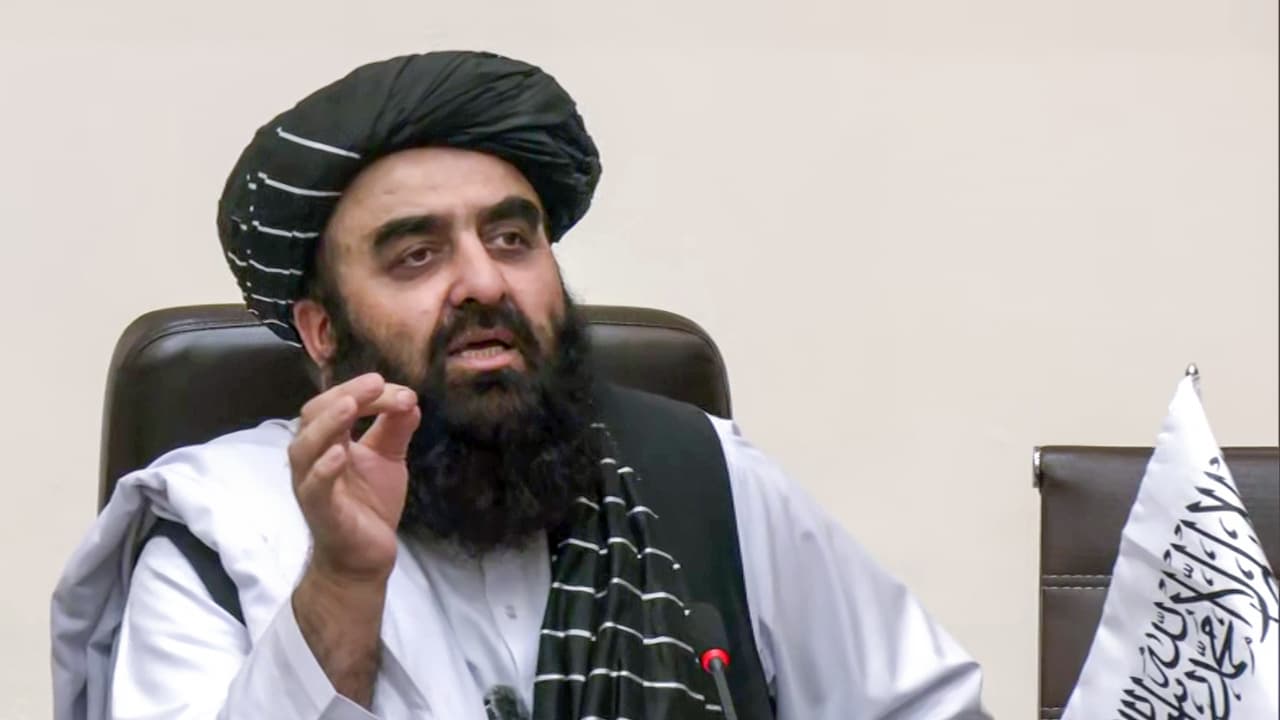The exclusion of women journalists from Taliban FM Amir Khan Muttaqi’s Delhi press conference sparks outrage in India, with opposition leaders, media bodies, and parliamentarians condemning the move as discriminatory and an insult to gender equality.
The visit of Afghan Foreign Minister Amir Khan Muttaqi to India has stirred a political and social debate over gender equality, press freedom, and India’s diplomatic balancing act. While his visit to Darul Uloom Deoband in Saharanpur went ahead without incident, a press conference in Delhi on Friday where no women journalists were present has dominated headlines and political discourse.
Friday’s Delhi Presser: Sparks Controversy
The absence of women journalists at Muttaqi’s Delhi press conference drew immediate criticism. Opposition leaders termed it “unacceptable” and an “insult to women.”
Rahul Gandhi condemned the Prime Minister’s silence: “Mr Modi, when you allow the exclusion of women journalists from a public forum, you are telling every woman in India that you are too weak to stand up for them. In our country, women have the right to equal participation in every space. Your silence in the face of such discrimination exposes the emptiness of your slogans on Nari Shakti.”
Priyanka Gandhi Vadra questioned whether the Prime Minister’s recognition of women’s rights was genuine:
“Prime Minister @narendramodi ji, please clarify your position on the removal of female journalists from the press conference of the representative of the Taliban on his visit to India,” she wrote on X.
“If your recognition of women’s rights isn’t just convenient posturing from one election to the other, how has this insult to some of India’s most competent women been allowed in our country, a country whose women are its backbone and its pride,” she added.
Scroll to load tweet…
Congress general secretary Jairam Ramesh called the exclusion shocking and unacceptable, noting the timing on the eve of the International Day of the Girl Child.
Trinamool Congress MPs Mahua Moitra and Sagarika Ghose criticised the government’s handling:
“The government has dishonoured every single Indian woman by allowing the Taliban minister to exclude women journalists from his presser. Shameful bunch of spineless hypocrites,” Moitra wrote.
“Women journalists being excluded from the #Taliban press conference in Delhi is UNACCEPTABLE and HATEFUL. This is not oh-so-smart ‘geostrategic diplomacy’, it is a surrender by the weak, failed Narendra Modi coalition government,” Ghose added.
Scroll to load tweet…
Scroll to load tweet…
Scroll to load tweet…
RJD MP Manoj Kumar Jha described it as a symbolic surrender of India’s values: “This is not just a procedural lapse but a symbolic surrender of India’s long-cherished commitment to equality, freedom of the press, and gender justice. For a country that has prided itself on being the world’s largest democracy and a champion of women’s participation in every sphere, this incident is deeply disappointing and politically short-sighted. It sends out the wrong message to Indian women and the global community that convenience has triumphed over conviction. Jai Hind.”
Scroll to load tweet…
Shiv Sena (UBT) MP Priyanka Chaturvedi noted the irony: “No women journalists invited for the presser (because of Taliban beliefs). The Bamiyan Buddhas (destroyed by the Taliban) were the backdrop at the presser. The messaging of the ‘Emirates of Afghanistan’ as recognised as of yesterday by the Indian government. Truly ironic.”
Scroll to load tweet…
Scroll to load tweet…
Media Bodies Speak Out
The Indian Women’s Press Corps (IWPC) said the act was “highly discriminatory” and urged the government to address it with the Afghan Embassy:
“Established to promote and advance the professional growth of women journalists, the IWPC sees this act as highly discriminatory. It goes against the grain of our democratic ethos and constitutional values that uphold gender equality. We urge the government of India to take this matter up with the Afghan Embassy to ensure that such gender-based exclusion in media briefings does not occur in the future,” the statement said.
Darul Uloom Deoband: No Restrictions on Women
Meanwhile, several social media users raised eyebrows if women journalists were restricted even during his visit to Deoband on Saturday. However, Darul Uloom PRO Ashraf Usmani, who was also the media in-charge of the programme, dismissed claims of gender-based exclusion as “baseless.”
“There were no restrictions from the Afghan foreign minister’s office about who would attend,” he said.
A public event for the minister had been planned at the seminary on Friday but was called off due to overcrowding and security concerns.
“Though the programme was called off due to overcrowding, the presence of a couple of women journalists for the Afghanistan minister’s event was enough to rebut reports of women journalists being made to keep away from the event,” Usmani added, naming the news channels the reporters represented.
“Various things were doing the rounds, from women journalists not being allowed to them being made to sit separately. All of this was baseless,” he said, emphasising that there was no ‘purdah’ or curtain at the venue, and women reporters were seated alongside their male colleagues.
“As the district administration announced that the programme had been cancelled owing to overcrowding, we hurriedly invited the media at the guest house for a quick interaction before Muttaqi left for Delhi,” Usmani explained.
Taliban’s Role and India’s Dilemma
According to reports, the decision to restrict attendance at the Delhi presser was taken by officials accompanying the Taliban minister. The Indian side had suggested women journalists be included, but the final list excluded them.
Maulana Arshad Madani, president of Jamiat Ulama-e-Hind, described it as a coincidence:
“It was a coincidence that yesterday’s press conference was attended only by men. The Afghan foreign minister had not said no to women coming to the press conference. It was wrong and propaganda.”
The incident highlights India’s diplomatic tightrope: engaging with the Taliban without appearing to condone gender exclusion. Global criticism of the Taliban’s policies on women continues to place India in a delicate position.
